Frontiers in Medical Science Education
A special issue of Healthcare (ISSN 2227-9032).
Deadline for manuscript submissions: closed (31 March 2017) | Viewed by 585
Special Issue Editors
Interests: health literacy; population literacy; medical education; distance learning; education technologies; social networking; health disparities; medical errors
Interests: cognitive psychology; medical imaging; radiology; pathology; human performance; medical education
Special Issue Information
Dear Colleagues,
This special issue of Healthcare will feature invited papers, by experts, on important topics regarding the medical science education of future medical doctors, as well as the general public. Advances in K-12 health science education, college pre-medical science education, and medical school education will be featured. The current United States medical education framework was proposed, in 1910, by Mr. Abraham Flexner, a well-connected high school teacher who emerged as an organizational genius early in the twentieth century. Flexner adapted a European university-based medical school model to replace the proprietary medical school education model that had been prevalent in the United States at that time. Flexner’s disruptive innovation was the addition of US-specific standardized admissions criteria for medical school applicants. Over time, Flexner’s disruptive innovation seriously distorted the pre-medical education process and rendered the required college science coursework for medical school applicants, still in place today a century later (i.e., biology, inorganic and organic chemistry, and physics) with little value for future practicing physicians. This special issue will survey health science education throughout US society in relation to the education of medical students as well the general population. Current curriculum disparities among medical, nursing, and pharmacy students will be documented, and discussed in terms of down-the-road team delivery of healthcare services. Deficiencies of visual learning in nursing and pharmacy curriculum are discussed. “ Flexner 2.0”, a futuristic medical school model curriculum will be discussed in light of recent demonstrations that even K-12 students are capable of mastering subject matter previously reserved for medical schools in the United States. This special issue of Healthcare will feature 6 original papers by leaders in medical education whose work is at the leading edge of this critically important healthcare education arena.
Prof. Dr. Ronald S. Weinstein
Prof. Dr. Elizabeth A. Krupinski
Guest Editors
Manuscript Submission Information
Manuscripts should be submitted online at www.mdpi.com by registering and logging in to this website. Once you are registered, click here to go to the submission form. Manuscripts can be submitted until the deadline. All submissions that pass pre-check are peer-reviewed. Accepted papers will be published continuously in the journal (as soon as accepted) and will be listed together on the special issue website. Research articles, review articles as well as short communications are invited. For planned papers, a title and short abstract (about 100 words) can be sent to the Editorial Office for announcement on this website.
Submitted manuscripts should not have been published previously, nor be under consideration for publication elsewhere (except conference proceedings papers). All manuscripts are thoroughly refereed through a single-blind peer-review process. A guide for authors and other relevant information for submission of manuscripts is available on the Instructions for Authors page. Healthcare is an international peer-reviewed open access semimonthly journal published by MDPI.
Please visit the Instructions for Authors page before submitting a manuscript. The Article Processing Charge (APC) for publication in this open access journal is 2700 CHF (Swiss Francs). Submitted papers should be well formatted and use good English. Authors may use MDPI's English editing service prior to publication or during author revisions.
Keywords
- Medical science
- medical education
- internet-based resources
- informatics
- distance education
- interprofessional education
- curricular disparities
- computer-based learning
- medical errors
- human performance
Benefits of Publishing in a Special Issue
- Ease of navigation: Grouping papers by topic helps scholars navigate broad scope journals more efficiently.
- Greater discoverability: Special Issues support the reach and impact of scientific research. Articles in Special Issues are more discoverable and cited more frequently.
- Expansion of research network: Special Issues facilitate connections among authors, fostering scientific collaborations.
- External promotion: Articles in Special Issues are often promoted through the journal's social media, increasing their visibility.
- e-Book format: Special Issues with more than 10 articles can be published as dedicated e-books, ensuring wide and rapid dissemination.
Further information on MDPI's Special Issue polices can be found here.






